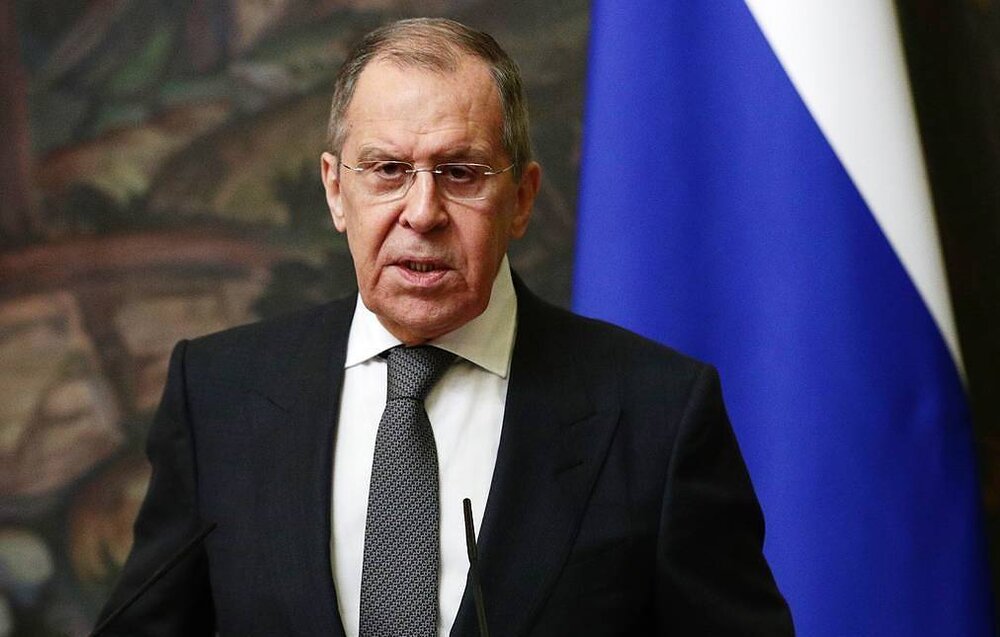U.S. should return to JCPOA without preconditions: Russia

TEHRAN - The Russian Foreign Ministry said on Monday that the United States should avoid setting preconditions for its return to the 2015 Iran nuclear deal.
“We believe that the U.S. return to the JCPOA should be without any preconditions. Our partners and we are ready for meaningful work in this area, and we are ready to help the Americans to step on the path of correction. This is in our shared interest,” the ministry said in a statement, the Russian news agency TASS reported.
The statement came hours after the parties to the Iran nuclear deal – officially called the Joint Comprehensive Plan of Action (JCPOA) - held an informal virtual meeting on Monday at the level of foreign ministers to discuss the latest developments surrounding the 2015 nuclear deal.
The foreign ministers of Iran, China, France, Germany, the Russian Federation, and the United Kingdom, as well as the High Representative of the European Union for Foreign Affairs and Security Policy, attended the December 21 meeting, which was agreed on last week during the meeting of the JCPOA Joint Commission.
During the meeting, Russian Foreign Minister Sergey Lavrov underlined that Moscow had taken note of Tehran’s statements, which articulate that Iran is ready to return to full adherence to the JCPOA as soon as the U.S. does the same.
The Russian Foreign Ministry said, “We hope that not only the current members of the JCPOA but Washington as well, take note of this signal. Strict adherence to the UN Security Council Resolution 2231 by the American side is not a matter of choice, it is an obligation of any state stipulated in Article 25 of the UN Charter.”
According to the Russian statement, all JCPOA parties have expressed their commitment to the obligations undertaken and the need to maintain them.
“The Russian side stressed that the recipe for the normalization of the JCPOA is within the plan itself: it’s the path of steady adherence to the agreements by all states that developed and signed them,” the statement added.
Russia also expressed readiness to do further work to ensure steady compliance with the Iran nuclear deal.
“The Russian side remains committed to further intensive work on steady adherence to the JCPOA in all its aspects based on the vetted balance of interests and the principle of reciprocity,” the statement concluded.
The JCPOA was reached during the Obama administration in 2015 but President Donald Trump withdrew the U.S. from it on May 8, 2018, and imposed sweeping economic sanctions on Iran. Although the nuclear deal is still alive, it faces an uncertain future. Because President-elect Joe Biden and his European allies hinted that the deal should be expanded to include other thorny issues.
The Monday ministerial meeting came at a time when new circumstances have arisen. Joe Biden won the presidential election in the U.S. in November and the Iranian parliament passed a nuclear law that, if implemented, would amount to Iran's withdrawal from the JCPOA.
During the meeting, the foreign ministers and the chief EU diplomat discussed a variety of issues related to the JCPOA such as preserving and fully implementing the deal, reiterating the need to continue the cooperation between Iran and the UN nuclear watchdog, and more importantly the prospect of a U.S. return to the nuclear deal, according to a joint statement issued after the meeting.
“JCPOA participants re-emphasized their commitment to preserve the agreement and stressed their respective efforts in this regard. They discussed that full and effective implementation of the JCPOA by all remains crucial and discussed the need to address ongoing implementation challenges, including on nuclear non-proliferation and sanctions lifting commitments,” the statement said.
The statement also said, “Ministers acknowledged the prospect of a return of the US to the JCPOA and underlined their readiness to positively address this in a joint effort.”
Chinese State Councilor and Foreign Minister Wang Yi, who attended the ministerial meeting, also called for U.S. unconditional return to the JCPOA. During the meeting, he made a 4-point proposal, according to Hua Chunying, spokeswoman for China’s Foreign Ministry.
Chunying also said that the U.S. withdrawal from the JCPOA is the root cause of the tensions surrounding the Iran nuclear deal.
Leave a Comment